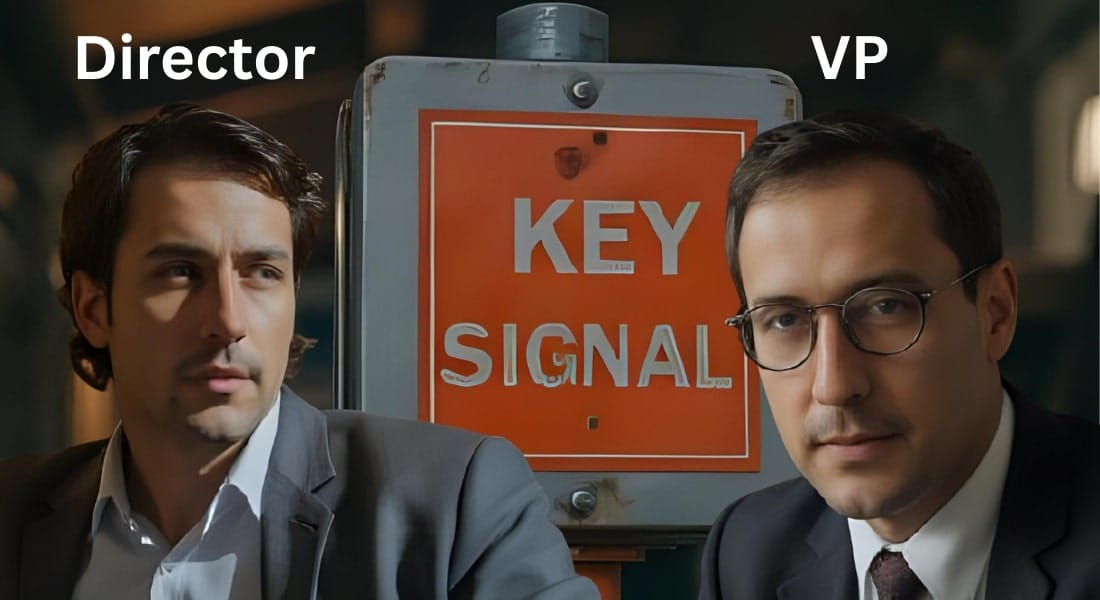Your company is scaling fast. The HR processes that worked for 30 employees are now breaking at 80. Payroll feels chaotic, managers are improvising performance reviews, and compliance concerns are creeping in. You know it’s time to bring in a true HR leader.
But here’s the critical question: Do you need a Director of HR or a Vice President of HR?
Hiring the wrong level of leadership can be an expensive mistake—either by over-hiring for your stage and burning budget, or under-hiring and stalling your growth. Many CEOs and founders underestimate how much impact the right HR leadership level has on retention, morale, and even valuation.
This guide will walk you through:
- The key differences between a Director and a VP of HR.
- The specific business triggers that signal when you need each role.
- The financial implications of both hires.
- How to make the right choice for your company’s next chapter.
Strategy vs. Tactics: Understanding the Fundamental Roles
The biggest difference between a Director of HR and a VP of HR is scope. A Director optimizes the present. A VP builds the future.
Here’s a side-by-side comparison:
| Feature | Director of Human Resources | Vice President of Human Resources |
|---|---|---|
| Primary Focus | Tactical & Operational: Manages HR functions, builds systems, ensures compliance, and leads the HR team. | Strategic & Visionary: Shapes company culture, aligns people strategy with business goals, acts as a C-suite advisor. |
| Time Horizon | Present & Near-Future (6–18 months) | Long-Term Future (2–5 years) |
| Key Questions | “How do we run HR effectively?” | “How does our people strategy drive business success?” |
| Reports To | Often reports to a VP, COO, or CFO. | Almost always reports directly to the CEO. |
| Scope | Manages a function. | Manages the entire people ecosystem. |
Examples:
- A Director of HR might implement a new applicant tracking system, ensure managers are trained on interviewing, and formalize performance reviews.
- A VP of HR might design a leadership development program, advise the CEO on organizational restructuring, and build a long-term talent pipeline aligned with business strategy.
Think of the Director as the engine operator keeping the train on the tracks, and the VP as the route planner deciding where the train needs to go in the next 3–5 years.
Key Signals: When to Hire a Director vs. a VP

✅ Hire a Director of HR when…
- You need formalization. With 50–150 employees, it’s time to move from “startup scrappiness” to structured systems: compensation bands, performance reviews, compliance policies, and an HRIS.
- Your HR team needs leadership. If your HR manager or generalist is stretched thin, a Director can step in to manage the daily function and mentor a growing team.
- Your executives still own people strategy. The CEO and leadership team can still shape culture and vision; they just need a skilled executor.
Scenario: Imagine a SaaS company with 90 employees. The CEO and COO are still hands-on with strategy, but HR feels chaotic. This is the perfect stage for a Director of HR to professionalize the function without over-investing in executive-level talent too early.
✅ Hire a VP of HR when…
- You need a “people” voice in the C-suite. Strategic initiatives—M&A, global expansion, or major product shifts—require HR insights at the table from day one.
- You’re preparing for scale. IPO readiness, securing large funding, or planning to double headcount in the next 12–18 months requires someone who can design scalable frameworks.
- Culture has become complex. If you’re losing top performers, struggling with leadership development, or facing cross-departmental friction, a VP can drive cultural alignment at the executive level.
- You need advanced HR functions. Areas like people analytics, total rewards, DEI strategy, or succession planning often demand VP-level expertise.
Scenario: Picture a biotech company at 220 employees that just closed a $50M funding round and plans to double in size. At this stage, a Director would be overwhelmed; a VP of HR ensures that hiring, retention, and leadership development scale in step with growth.
An Investment in Growth: Understanding the Cost and ROI

It’s no secret: a VP of HR is significantly more expensive than a Director. A VP-level hire typically commands not just a higher salary, but also performance bonuses and sometimes equity.
But cost is only one side of the equation. What’s the opportunity cost of not having the right leader?
- With only a Director, you may save on salary but risk weak cultural alignment or poorly managed rapid scaling—mistakes that can cost millions in turnover or missed opportunities.
- With only a VP, you may over-spend if your company isn’t ready for advanced strategy, leading to frustration on both sides.
ROI lens:
- Director of HR ROI: operational efficiency, reduced compliance risk, consistent HR processes, and stability as the company grows steadily.
- VP of HR ROI: accelerated growth, improved retention, stronger leadership bench, and a higher valuation for investors and buyers.
The key is not which role costs more, but which role creates greater enterprise value at your specific stage.
Making the Right Choice for Your Stage
Choosing between a Director and a VP of HR isn’t just about titles—it’s about aligning your people leadership with your business trajectory.
Here’s a simple decision-making framework:
- 50–150 employees: Director of HR is usually the right call.
- 150–500 employees or preparing for major growth events: VP of HR is the right investment.
Still, every company has unique nuances—industry, funding, growth pace, and culture all influence the right timing.
Making this decision can be complex—and the stakes are high. If you’re weighing your options, a confidential consultation with our HR executive search specialists can provide clarity, benchmark data, and market insight to guide your next move.
❓ Frequently Asked Questions (FAQs)
A Director of HR focuses on day-to-day HR operations—policies, compliance, performance management, and team oversight. A VP of HR, on the other hand, operates at the executive level, shaping company culture, aligning people strategy with business goals, and serving as a trusted advisor to the CEO and leadership team.
A Director of HR is typically the right choice for companies with 50–150 employees. At this stage, the priority is formalizing HR processes, managing compliance, and leading a small HR team while senior executives still drive the long-term people strategy.
A VP of HR becomes essential when your company is preparing for major growth events—like doubling headcount, international expansion, or IPO readiness—or when you need a “people voice” in the C-suite to guide culture, retention, and leadership development.
A VP of HR is a higher-cost hire due to salary, bonuses, and sometimes equity. However, the return on investment can be much greater, as a strong VP drives growth, reduces turnover, and increases enterprise value. A Director of HR delivers ROI through operational efficiency and risk reduction.
The right choice depends on your growth stage. Companies under 150 employees often benefit most from a Director of HR. Companies scaling rapidly, entering new markets, or preparing for significant funding usually need a VP of HR to align people strategy with long-term business goals.


